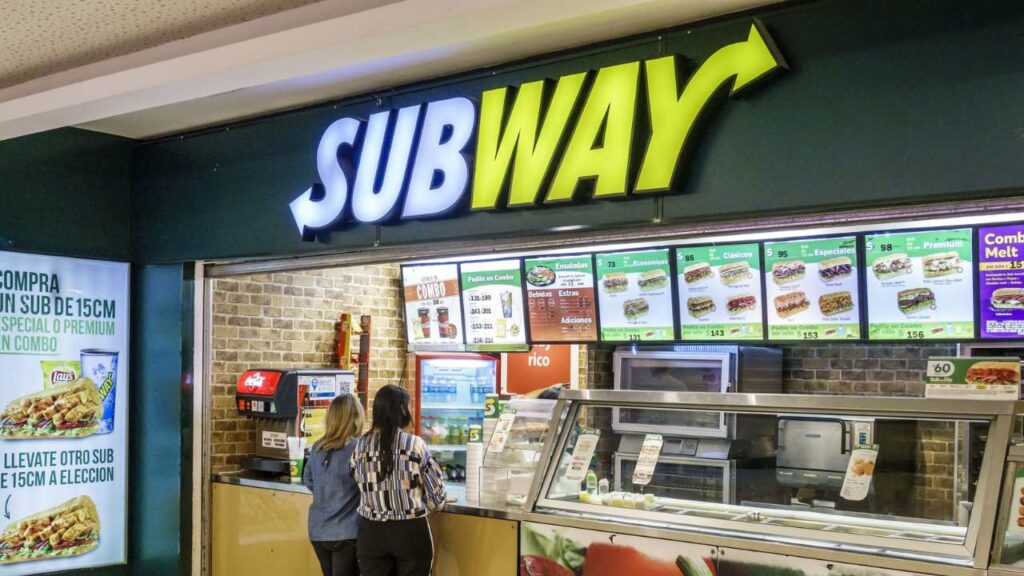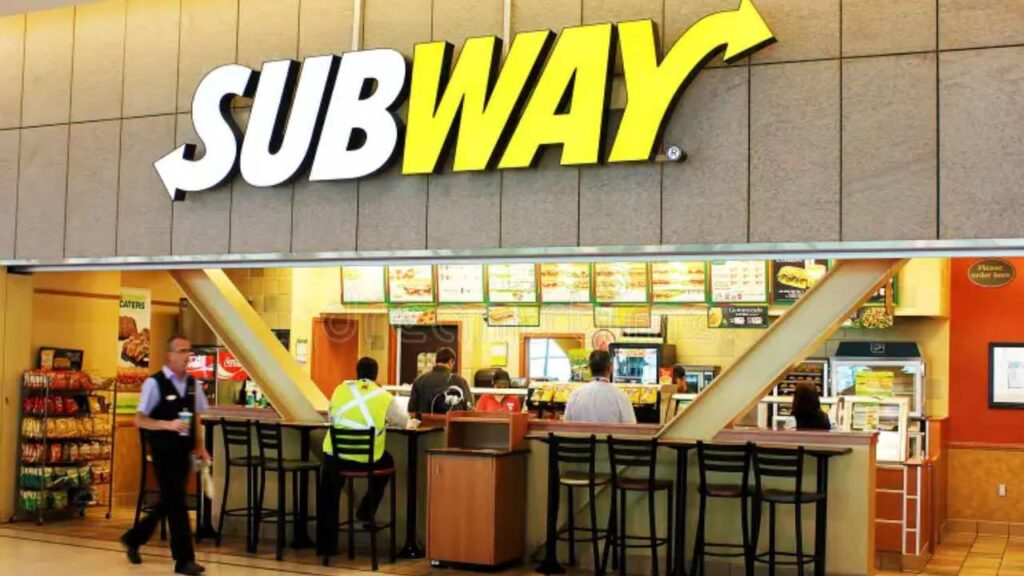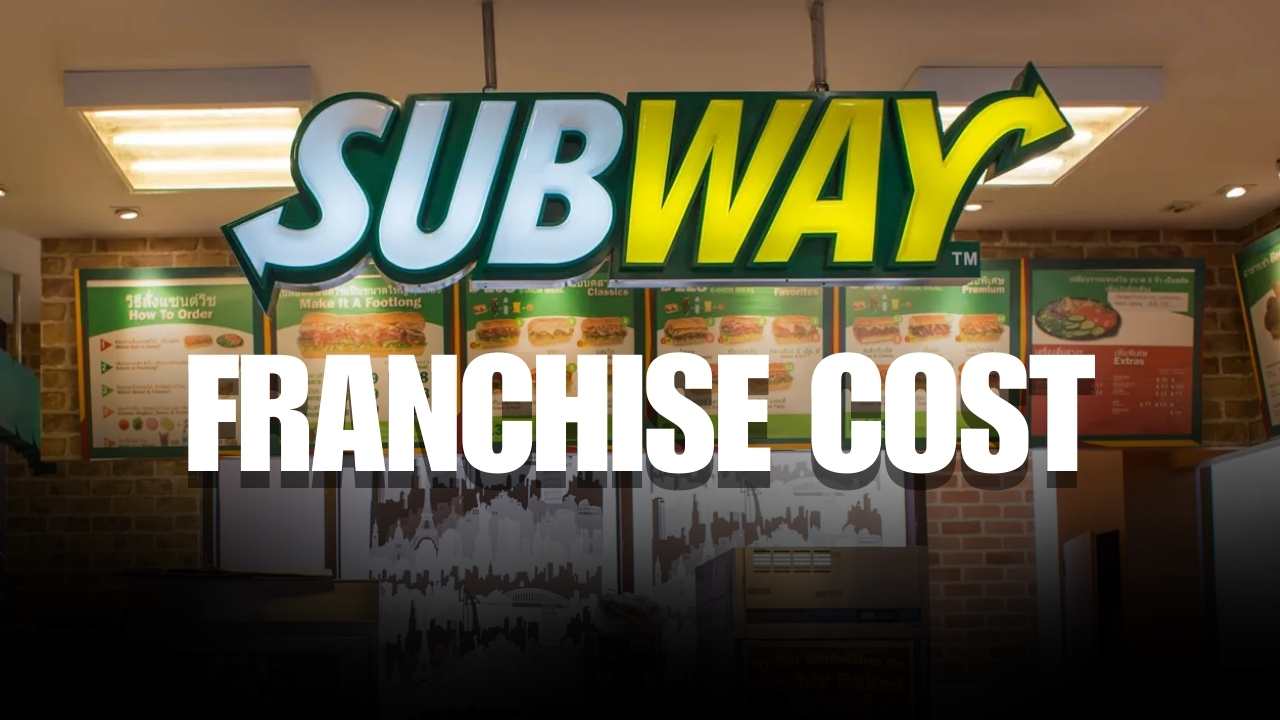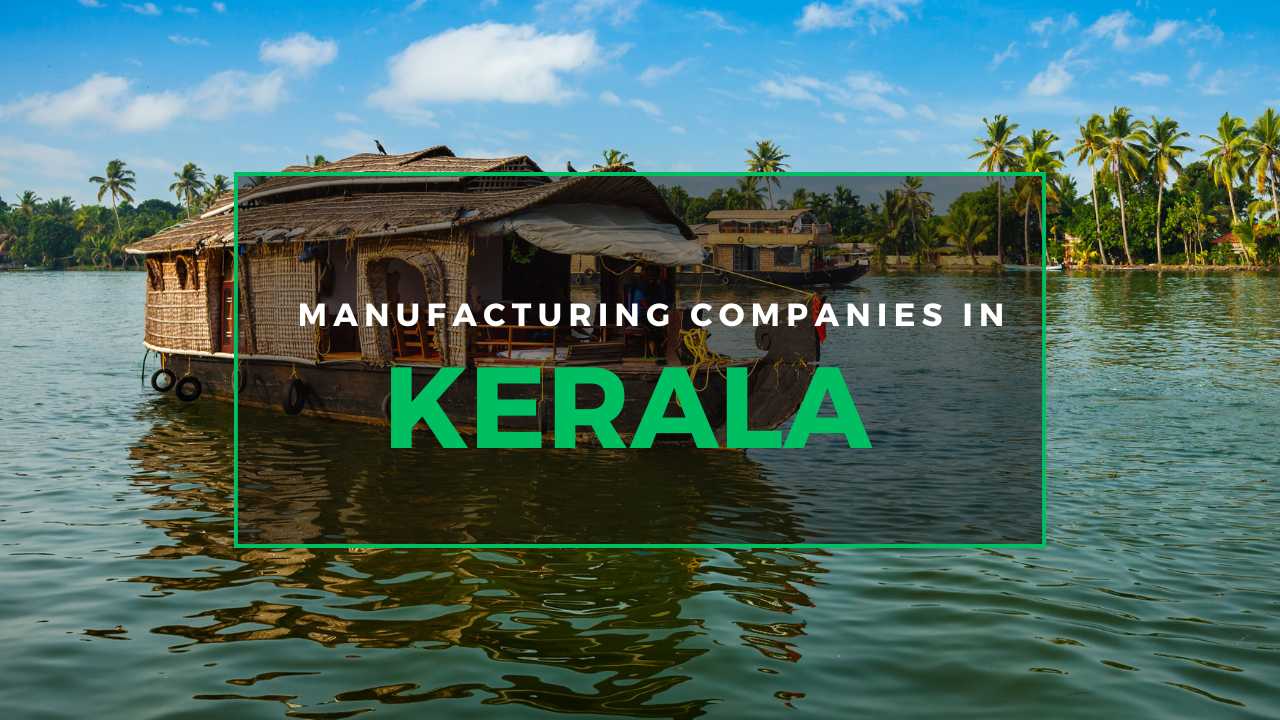Subway—a brand known for its customizable sandwiches and fresh ingredients—has crossed ROI game the crowded QSR world. Franchising with Subway has remained a lucrative venture for several entrepreneurs in India, as they strive to leverage the growing popularity of quicker, healthier, and relatively cheaper food consumption options. The food and QSR industry in India has exploded into one of the most profitable domains in recent years, driven by urbanization, changing consumer preferences, and rising disposable income.
With the Indian QSR market projected to grow at over 20% CAGR in the coming years, international brands have rapidly expanded in both metro cities and tier-2 markets. Franchising has become a preferred choice for young investors, offering a lower-risk model with brand recognition and institutional business support. As India’s food service industry is expected to reach ₹5.5 lakh crore by 2025, franchising with an established brand like Subway presents a strong business opportunity.
This article highlights Subway franchise cost in India, sums up the brand overview, analyzes market trends in the fast-food industry, and explores why Subway is a great investment in this booming sector.
About Subway

| Category | Details |
| Founder | Fred DeLuca and Dr. Peter Buck |
| Founded in | 1965 |
| Products Offered | Sub sandwiches, wraps, salads, cookies, drinks, and breakfast items |
| Number of Franchises | Over 37,000 locations worldwide (as of 2023) |
| Target Audience | All age groups, health-conscious consumers, fast-casual dining patrons, budget-conscious families |
| Growth Potential | High, with ongoing expansion in emerging markets and a growing demand for healthier, customizable fast food |
Subway is an international fast-food brand that is known for fresh and customizable sandwiches. Founded in 1965 by Fred DeLuca and Dr. Peter Buck, the brand has an edge in fast food being a healthier, cheaper alternative and has a Globalized Market for Increasingly Health-conscious Customers. In India, Subway opened its doors in 2001 and has since expanded by huge margins because of the increase in demand for food that is simple and nutritious.
Recently, Subway has consolidated its firm grip over the market, introducing innovative menu items and systems for ordering through the use of digitization, as well as green initiatives. Revenue continues upward without halt, with global revenues projected to reach $16.1 billion by 2023 and with profits from franchises soaring in areas such as India. The Indian market is still a priority, and more will be opened in tier-2 and tier-3 cities. Because of a well-defined value chain and strong brand loyalty, Subway still ranks among preferred franchises for investment within India premises.
Why Choose a Subway Franchise?

Its franchise model has given several exciting reasons to wannabe entrepreneurs in India. Let us now discuss some benefits of owning a franchise.
1. Low Initial Investment
It is relatively low on its initial Subway franchise cost in India compared to many QSR chains. The company provides flexibility in investment, and most budgets can be accommodated. The total investment involved in opening a store in India varies between ₹30 lakhs to ₹1 crore, depending upon the location, size of the store, and also the format chosen-standard or non-traditional format.
2. Established Brand Name
A strong reason franchisees like this brand is that it has high brand recognition. One of the world’s most recognized fast-food chains, it has a customer base following and is well-loved by loyal customers. Its brand promise of healthy flexible meals leads to compete well in the competitive Indian market, especially among health-conscious customers.
3. Tested Business Model
It has a proven, tried business model that has been perfected and polished over the years. It trains franchisees to perfection in all dimensions, starting from food preparation to customer service, business management, and marketing strategies. In addition, it supports franchisees with marketing tools, operational tools, and a solid supply chain to help simplify the business.
4. Training and Support
The other strong point of the franchise model is the training and support it offers to the parent company. This provides its franchisees with proper skills that are needed for a business to run. It gives them the education on managing inventory, subway franchise cost control, quality maintenance, and proper marketing of the brand.
Subway Franchise Cost in India: Breakdown
Total investment, however, varies with location and size of the outlet chosen, as well as whether you opt for a traditional or non-traditional format. The following lists some of the costs customarily included in the total investment:
| Cost Category | Details |
| Franchise Fee | ₹7 lakhs to ₹15 lakhs (one-time payment for brand name and operational support) |
| Total Investment | ₹30 lakhs to ₹1 crore (includes franchise fee, store setup, equipment, initial stock, and working capital) |
| Royalty Fees | 8-10% of gross sales (charged monthly, covers operational support, brand marketing, and guidance) |
| Marketing Charges | 4-5% of monthly sales (used for national advertising and brand promotions) |
| Overhead Costs | Varies (includes rent, electricity, employee salaries, etc., based on location and store size) |
- Franchise Fee: In India, the initial franchise fee for Subway generally ranges between ₹7 lakhs and ₹15 lakhs. This is a one-time payment made to operate under the this brand name and to avail of the operational systems and support from the company.
- Total Investment: Subway’s India franchise investment is between ₹30 lakhs and ₹1 crore. It incorporates the initial investment of the franchise fee, building up the store, the equipment, initial stock, and working capital.
- Royalty Fees: This brand charges around 8-10% of the gross sales as royalty fees. The charge is monthly and will include all types of support, brand marketing, and operational guidance.
- Marketing Charges: This brand charges a marketing fee, which is supposed to be about 4-5% of monthly sales. The marketing charges go into the national adverts by the brand to keep keeping the brand name alive
- Overhead: Other overheads could also be rent, electricity consumption, employee salary, amongst others. It may range according to location and even the size of the stores.
Factors Affecting Subway Franchise Profit
Some of the major essentials in order to operate a franchise are as follows.
1. Location
One of the major success factors includes location. This brand’s franchises prove to be good at high foot traffic locations, like shopping malls, shopping complexes, office areas, or highly busy streets. It would also be good to close proximity to schools, colleges, or gyms as they attract healthy people.
2. Operational Standards
This brand has set operational standards to meet for quality and uniformity. Among them are proper training, control of inventory, cleanliness, and food safety standards.
3. Staffing
This franchises require well trained and committed staff for making food, serving the consumers, and managing day to day affairs. Though this brand has training programs offered, finding skilled employees fit for brand values is needed.
4. Marketing
This brand have an opportunity for corporate marketing campaigns that are undertaken by the companies. The local marketing opportunities are also required in case of this brand.
Steps to Start a Subway Franchise in India
It all goes with a process followed for opening this franchise in India, which assures satisfaction from both ends-the franchisee and the brand. Here is a list of steps required in this process:
1. Preliminary Research
Research Subway franchise model, the business operation mechanism, and profitability. Its philosophy, menu, operation standards, and market feasibility are essential to be known in the initial research.
2.Submit Application:
Now that you have done all your research, submit an application through Subway’s website or write to the franchise team. The application would require personal and financial information in addition to a brief business plan.
3. Review and Interview
After you have forwarded your application, This brand checks your financial stability, experience in business, and ability to suit the brand. If you are chosen for the interview, further discussion can be held with you, and the brand performs a background check to ascertain if your qualifications match what the brand requires.
4. Location
After the contract is approved, you shall source a location that is perfect for your Subway outlet. Location has to be according to the brand’s requirement of being large enough and having great visibility and foot traffic. It provides help in getting the right location, however the final choice is taken by the franchisee itself.
Documents to be Produced
Whereas, this region-specific requirements differ from city to city, generally an overall documentation list to apply for the Subway franchise in India should be the following:
- Identification Proof: that is an aadhar card, valid passport or voter identity card.
- Utility Bill: any Utility bill in your name on electricity, gas, and water, or bank statement reflecting your current residential address.
- Educational Qualifications: No degree at all but some business acumen or some experience in the food service industry.
- Proof of Financial Stability: You will be asked to provide proof of financial stability in terms of bank statements and income tax returns, and proof of liquid capital. This brand requires the franchisee to have money for the initial investment and working capital.
- Business Plan: This brand might demand a business plan which will explain how you intend to run the franchise, the target market, and your marketing strategy. A good business plan means dedication and a future for your franchising business.
- Net Worth Certificate: This is a certificate given by a financial institution, which will give all of your assets and liabilities, and thus ensure that you are credited enough to begin running your franchise.
How to Apply for a Subway Franchise
This process, however simple, initiates with proper planning and research work. Here is step by step procedure to file a request for this Franchise:
1. Research work
Before the franchisee applies, it is very much required that deep research on the Subway brand as well as on its business model and the presence of this brand in the Indian market should be done and evaluate whether it is at the apt time or not considering its financial capabilities and its business agenda.
2. Application
The application may be done either online by using their website or directly to Subway’s franchise development team. This application will ask for personal information, financial information, and a concise business plan showing what you want from the franchise.
3. Franchise Review
They will review your financials, your business background and your fit to open up the franchise once your application hits their desk. The procedure may involve an interview or a meeting to delve deeper into your background and intent in this process.
4. Site location
Once your application goes through, the next action is to identify a desirable location for your franchisee. This brand will help the franchisee select a proper location, but the ability of the site to perform finally depends on the potential of it.
5. Franchise Agreement
You will then sign with Subway a legal agreement that details terms of the franchise, the fee to take over a franchise, paying royalties and other obligations.
6. Training and Setup
After signing an agreement, The barnd will offer training for you and your employees. The brand further helps in the setting up of the store based on its operational procedures to get the location ready to be opened.
Support and Training Provided by Subway
This brand has a good, strong training program in place to prepare franchisees for running their outlets properly. Here’s an overview of the support and training you can expect:
1. The High-Intensity Training Program
Business Subway also provides a very intensive training program regarding the entire extent of the business. For example, one would discuss food preparation, customer service provision, supply management, functional functions, and workers. The franchises are trained through these local learning centers or even subsidiaries.
2. Ongoing support in operation:
After opening its franchise, The brand offers operating support in the following operational areas: day-to-day operation and marketing strategies, training on employees, and new menus. This will help keep franchisees at par with operating challenges while maintaining a strong level of operational performance.
3. Supply Chain and Procurement Support:
Subway supplies the franchisees with an integrated supply chain that offers regular supply of quality raw materials and other products they may require. This gives assurance to the franchisee to control the quality, so food served to customers remains fresh.
4. Marketing and Advertising:
The brand also provides support for its franchisees through a national and local marketing effort. The efforts of the brand are focused on increased foot traffic to the franchises, to promote special offers, and to enhance brand visibility. This also covers local advertising and promotions, which are part of the packages for support.
Subway Franchise: Is It Really Worth the Investment?
Below are the most important points to evaluate whether or not this brand’s Franchise is worth the investment.
1. Low Initial Investment
This brand is one of the cheapest international food chains. The subway franchise cost in India will depend upon its size and location. It can go up to ₹30 lakhs and ₹1 crore. Therefore, such an investment will be significantly lower compared to other QSR (quick-service restaurant) brands, thus being relatively feasible for entrepreneurs.
2. Steady Growth of the QSR Market:
The Indian QSR market is growing at a very high rate due to urbanization, changing eating habits, and increasing demand for fast food. In this market, this brand stands out as an option with healthier eating and customizable meals.
3. Profit Potential
The entry level is not too high, but the profit potential is based on the location and efficiency of operation. If the customers come frequently, with steady sales and cost control, good ROI is expected over time.
4. Global Brand Recognition
Subway is a global brand with high brand recognition that supports customer loyalty and foot traffic. This makes marketing and attracting customers easier than establishing a new food brand.
Pros & Cons of Subway Franchise Business
Any other business has pros and cons, so this franchise does. Here is a quick look at the pros and cons:
Pros:
- Brand Recognition: It is one of those brands that can easily pull in customers.
- Low Investment Cost: It has a pretty low initial investment compared to other QSRs that makes it very attractive to wannabe franchisees.
- Healthy Menu: The health-orientated menu of the brand has attracted the ever-growing Indian consumer base.
- Training and Support: Subway offers to the franchisee extensive training and ongoing support, so running the business becomes simpler for him or her.
Cons:
- Location dependent: Success is largely dependent upon selecting the right high foot-fall location, which, at times, becomes highly challenging or expensive.
- Ongoing Royalties: The ongoing royalty and marketing fees drawn by the brand directly impact profit margins.
- Competition: QSR market is very competitive because of the numerous local and international brands for consumer attention.
Conclusion
This would be an incredibly exciting venture for any entrepreneur with interest in quick-service restaurant franchises, which have become very popular lately. Low initial investment, full training, and the great brand name all help make Subway’s franchisees very successful. However, the subway franchise cost in India, location, and the competition should be estimated very carefully before one decides to invest. Hence, this franchise can actually become a very high-income generating business venture if proper strategy is invested in it.
FAQs
1. How much is the initial franchise fee for a Subway franchise in India?
The initial franchise fee of this brand franchise in India usually varies between ₹7 lakhs to ₹15 lakhs.
2. How much investment is required to enter this franchise in India?
The total investments are in the range of ₹30 lakhs up to ₹1 crore for location and store format.
3. Does this brand Support in terms of marketing also?
Yes, they have national marketing support together with local promotion guidelines.
4. What are the franchise royalties of this brand?
Subway charges royalty fee at around 8-10% of gross sales and a marketing fee of 4-5%.



